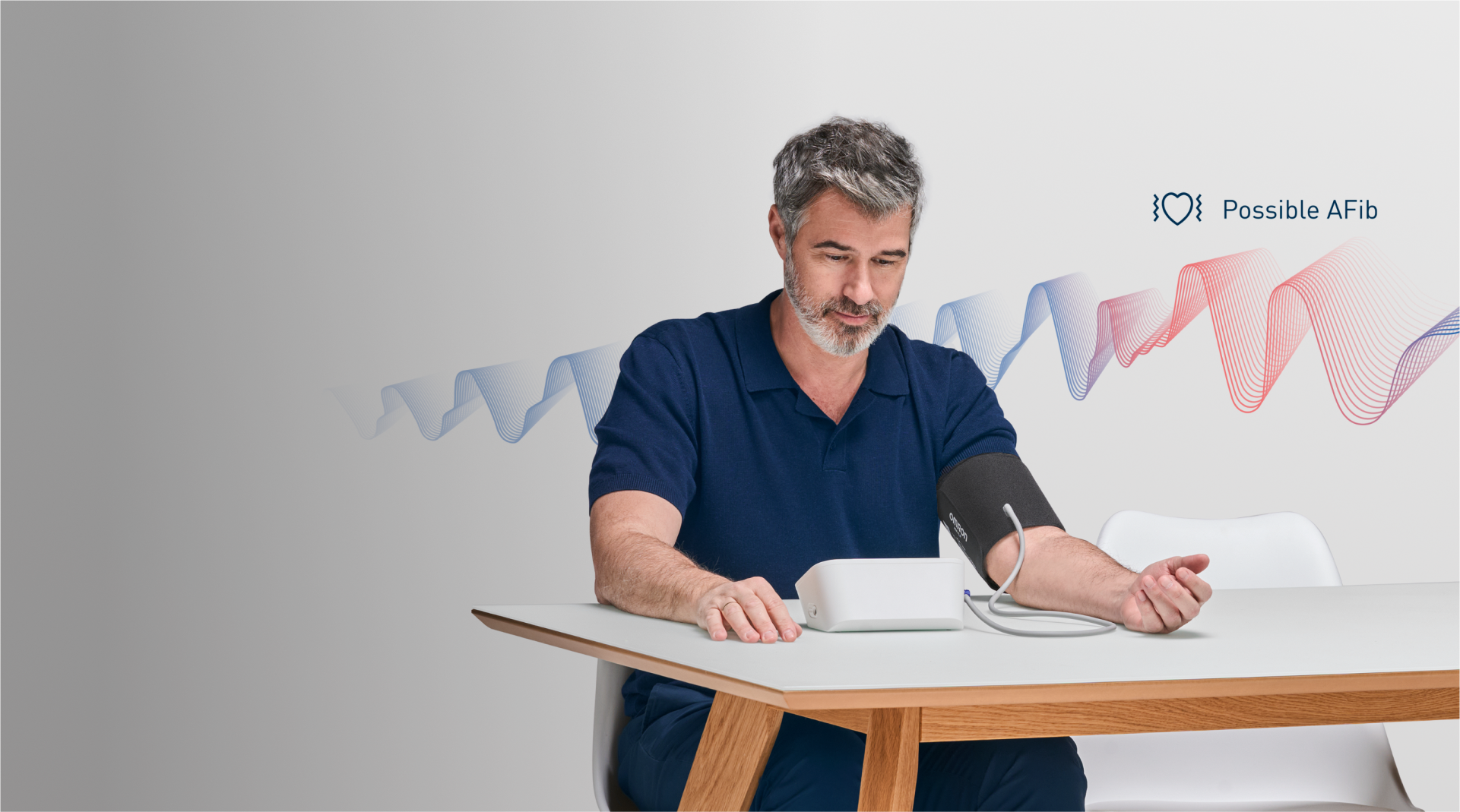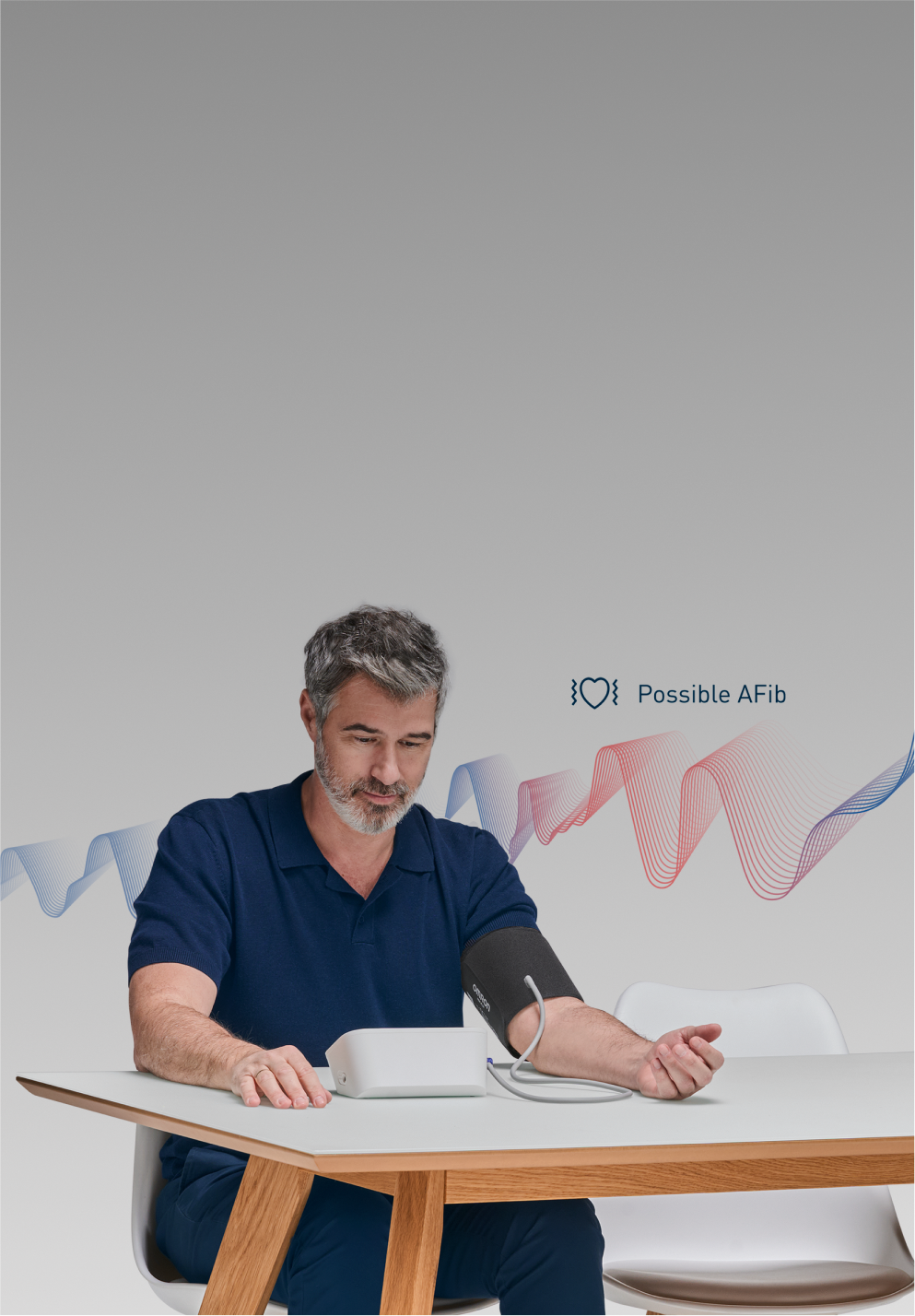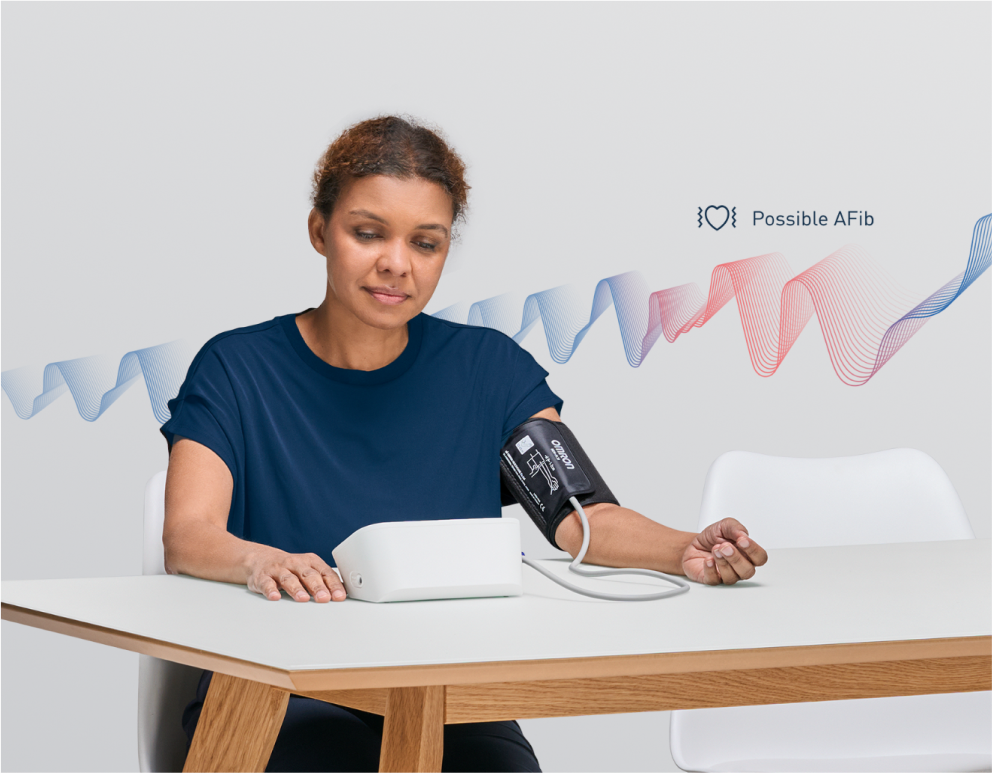


Uncover stroke risk early
Reduce stroke risk by 66% with early detection of AFib1


Stroke prevention
Heart disease is the leading cause of death worldwide
Early detection of potential heart conditions and elevated blood pressure, which are major risk factors for strokes, can allow for prompt intervention and potentially prevent strokes.



AFib raises stroke risk by 5X2
Atrial Fibrillation, a commonly undiagnosed heart rhythm disorder can lead to serious complications like stroke and heart failure, especially in individuals with hypertension.
Early detection is essential and life-saving
Undetected high blood pressure is itself a risk factor for AFib, creating a dangerous cycle. And the number of AFib patients is increasing rapidly due to the aging population and a sedentary lifestyle.

Routine blood pressure checks now automatically screen for Atrial Fibrillation with the revolutionary Intellisense AFib technology.
OMRON's AI-powered technology calculates blood pressure values and detects AFib using a pulse pressure wave (PPW). A PPW is a waveform that represents arterial pressure changes. Intellisense AFib captures these differences to detect the possibility of AFib.


Intellisense AFib vs ECG technology

Intellisense AFib technology enables more and more people to access convenient, effective methods of detecting Atrial Fibrillation early to aid in safe guarding their heart health.
While ECG is a different technology providing healthcare professionals with more detailed cardiac data from regular monitoring in order to inform the diagnostic process, facilitate evaluation of medication effectiveness and aid in preventing recurrence of events.


Maximize the benefits of regular monitoring
Capture blood pressure readings and screen for AFib in one go


Why trust Intellisense AFib technology?
Intellisense AFib technology employs machine learning techniques using a unique AI-powered algorithm developed through the analysis of thousands of ECG readings and pulse pressure wave clinical data points, validated in collaboration with medical professionals, ensuring its precision and reliability with a sensitivity of 95% and specificity of 98%3.
- Lei N, et al. Hybrid Decision Support to Monitor Atrial Fibrillation for Stroke Prevention. Int J Environ Res Public Health. 2021 Jan 19;18(2):813.
- Verdecchia, P., et al. (2018). Hypertension and Atrial Fibrillation: Doubts and Certainties From Basic and Clinical Studies. Circulation research, [online] 122(2), pp.352–368. doi:https://doi.org/10.1161/CIRCRESAHA.117.311402.
- Diagnostic Accuracy for Detecting Atrial Fibrillation Using a Novel Machine Learning Algorithm in a Blood Pressure Monitor, Heart Rhythm published online 29 April 2024. DOI: https://doi.org/10.1016/j.hrthm.2024.04.086
What is Atrial Fibrillation (AFib), and why is it important to monitor?
Content for: What is Atrial Fibrillation (AFib), and why is it important to monitor?
How does the Intellisense AFib BPM work?
Content for: How does the Intellisense AFib BPM work?
What makes the Intellisense AFib technology different from traditional blood pressure monitors?
Content for: What makes the Intellisense AFib technology different from traditional blood pressure monitors?
Can I use the Intellisense AFib BPM without medical training?
Content for: Can I use the Intellisense AFib BPM without medical training?
2 What is Atrial Fibrillation (AFib), and why is it important to monitor?
Content for: 2 What is Atrial Fibrillation (AFib), and why is it important to monitor?
2 How does the Intellisense AFib BPM work?
Content for: 2 How does the Intellisense AFib BPM work?
2 What makes the Intellisense AFib technology different from traditional blood pressure monitors?
Content for: 2 What makes the Intellisense AFib technology different from traditional blood pressure monitors?
2 Can I use the Intellisense AFib BPM without medical training?
Content for: 2 Can I use the Intellisense AFib BPM without medical training?



